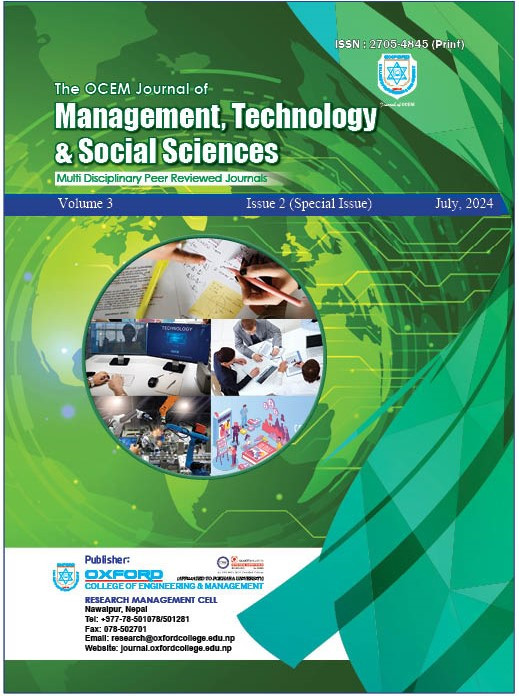
Preparedness of Nepalese Academia for Society 5.0: A Study on Human Resources and Technology Transformation
The present study employed a positivist-deductive approach with a causal-comparative research design, utilizing purposive convenient sampling to select 433 participants from various Nepalese academic institutions. An online platform facilitated the administration of a meticulously structured data collection instrument i.e. structured questionnaires. Descriptive analysis, alongside inferential statistical analysis using SPSS software 24, was conducted. Validity and reliability tests were performed with Amos 22, offering empirical insights into the preparedness of Nepalese academia for the Society 5.0 paradigm shift. This research design allowed for an in-depth examination of the preparedness of Nepalese educational institutions, contributing to theoretical insights and practical understanding of the interplay between human resources and technology integration. Findings revealed a low level of preparedness among Nepalese academia for the transition to Society 5.0, particularly in human resources and technology integration. Utilization of technology in recruitment processes enhanced efficiency and reduced time-to-hire, aligning with Society 5.0 goals. However, a significant gap in digital literacy among faculty members was identified, highlighting the need for resources and training programs to facilitate technology integration into teaching methodologies. However, the institution advocates for its faculty to adopt innovative teaching methods such as blended learning and flipped classrooms, which are crucial for providing experiential learning opportunities in alignment with Society 5.0 principles. The study provides valuable insights for educational leaders, university, and policymakers aiming to enhance institutional preparedness for Society 5.0, enriching understanding of factors influencing preparedness and laying a foundation for impending researcher in the context of technological and educational advancements in Nepalese academia.
